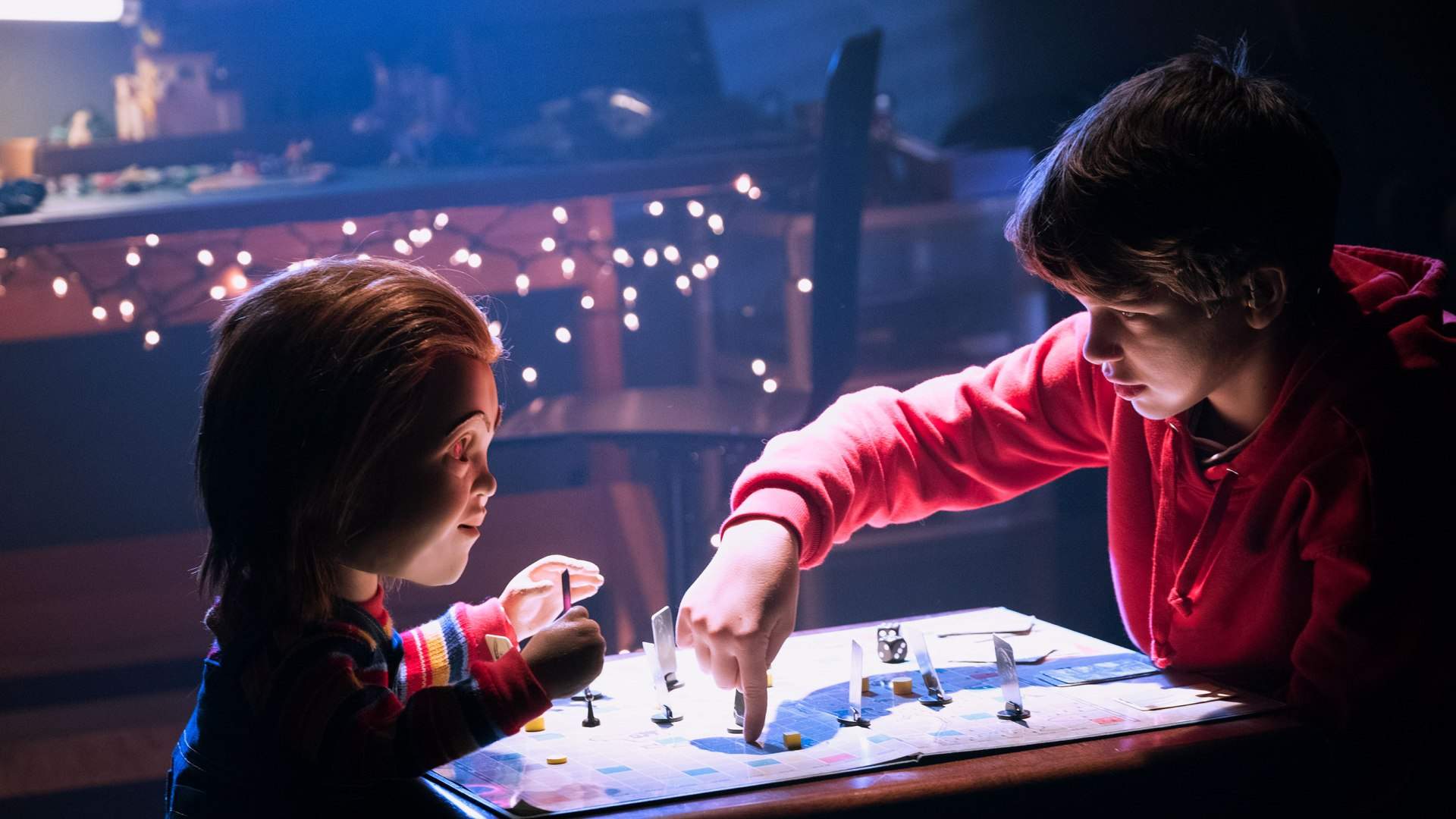Child's Play
Chucky is back in this gory but ultimately underwhelming reboot.
Overview
Black Mirror, meet 80s cinema's favourite flame-haired, knife-wielding plaything. That's Child's Play circa 2019 straight out of its gleaming box. Chucky has never gone away, with the last flick in the initial seven-film franchise hitting home entertainment just two years ago. An eight-part series called Chucky is headed to TV screens next year, too, from the original movie's Don Mancini. But updating the carnage-inflicting toy for today's incessantly-online, internet-of-things environment was always going to happen, jettisoning the notion of a doll possessed by a serial killer for something considerably more high-tech. It's a premise rich with possibilities — dissecting humanity's growing subservience to technology, our fear of artificial intelligence, the reality that all-powerful companies may not have customers' best interests at heart, and showing how increasingly aggressive times can create a dangerous and deadly loop of vicious behaviour.
Sadly, although the new Child's Play doesn't shy away from its many timely ideas, it doesn't do anything more than push them through a horror assembly line. A standard slasher flick made from well-worn parts remains just that, even when it has been given a famous name, plenty of topical talking points and a slick visual makeover. In fact, the fact that this do-over tries so hard to pair its murderous robotic figurine with timely observations, while also happily sticking to a bland, broad, surprise-free playbook, is its most grating trait. Perhaps it's simply peddling another piece of social commentary: that movie studios, like toy corporations, can release whatever generic fare they like as long as they make it appear shiny enough, and consumers just have to stomach the resulting havoc and dreck. Whether you're buying the latest gadget or heading to the cinema, that's the cost of making a purchase today.
Single mother Karen Barclay (Aubrey Plaza) doesn't actually hand over any hard-earned cash for a walking, talking Buddi doll (which speaks with the voice of Mark Hamill). Instead, the department store employee convinces her boss to let her take one of the returned, malfunctioning toys home as a gift for her hearing-impaired son Andy's (Gabriel Bateman) birthday. Almost a teenager, the boy is hardly overjoyed about his present. Still, he's lonely and in a new city, the computerised plaything clearly adores him like it is programmed to, and it also helps him befriend a couple of neighbourhood kids (Ty Consiglio and Beatrice Kitsos). That said, that something is astray is clear from the moment that Andy's plastic buddy decides its own name is Chucky. As the movie's opening scene shows, a disgruntled sweatshop worker has removed the figurine's appropriate language and anti-violence filters in an act of employee-level corporate vengeance. So while Chucky might seem like little more than an eccentric and clingy android BFF to Andy, the smart doll is willing to do whatever it takes to keep their friendship alive — including slaughter anyone who gets in the way.
If first-time feature director Lars Klevberg and debut screenwriter Tyler Burton Smith are trying to pre-empt criticism by having their mechanical villain love something so much that it turns into a toxic fan, slaying everything in its path irrationally and indiscriminately, that's one of their big swings and misses. It's better reading into their other big theme, and one that Chucky demonstrates again and again in trying to resolve Andy's woes with a knife: being careful what you wish for. For material so rife with potential, Child's Play remains content to make the easiest and most apparent statements in routine and uninspired ways. It's also happy to follow cookie-cutter characters, throw in the expected deaths and just generally follow the operating manual. And while there's undeniable pleasure in hearing Parks and Recreation alumni Plaza say the name 'Andy' repeatedly, she headlines an entirely wasted cast. Playing a cop whose mother lives in the same building as Karen and Andy, Atlanta's Brian Tyree Henry falls into the same category. So do Hamill's creepy but never overly menacing vocals.
When Chucky keeps killing over and over again with a single-minded focus, Child's Play begins to resemble another tech-heavy, needlessly rebooted, never-say-die franchise: the Terminator. It's not that these sagas don't know when to end; rather, they keep kicking on without justifying why. The same can be said for recent instalments in other long-running series, such as X-Men and Men in Black. But, simultaneously glossy and formulaic where its predecessors were gleefully makeshift and off-kilter, Child's Play couldn't try harder to stress that it's a new beginning. It is, and yet starting over again isn't always a good thing.
Credit where credit is due, however. Who dies, and when, never comes as a shock, but this horror flick does value a great bit of gore. While the bloodshed takes time to splatter across the screen, when it comes, it's memorable. If only Klevberg and Smith had expended the same energy and inventiveness on the rest of the film as they do on Chucky's growing pile of bodies. Their one other playful attempt arrives via the movie's blackly comic tone, endeavouring to ape The Texas Chainsaw Massacre 2, and even using clips of the 80s slasher sequel to teach the picture's homicidal robot how to stab, slice and snatch people's faces off. If you're thinking the obvious, though, you're right — whether it's reimagining its source material, adhering to topical and filmmaking trends, or nodding to other genre fare, Child's Play follows poorly in everyone's footsteps.





